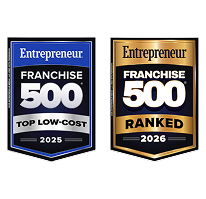The insurance industry is full of financial opportunities if you know how to find and make good use of them. But is it a good idea to invest in insurance companies? And how do you actually get started investing in one? This guide will walk you through the key insights, ownership models, and potential benefits and risks. A good starting point is exploring multiple active ownership and passive investment models related to successful insurance companies.
Comparative Analysis of Insurance Investment Models
Do you want to roll your sleeves up, talk to customers about their coverage needs, and close deals? Or are you out to simply improve your stock portfolio? You can enter the industry either way. Check out the various options you have to maximize your insurance investment.
The Insurance Industry Investment Landscape
Before you make your first investment, you’ll want to take a big-picture industry view. What does the field offer both today and in the foreseeable future? What are the challenges, obstacles, and opportunities?
Current Insurance Market Overview and Growth Projections
There are — and most likely always have been — industry challenges. After all, the very concept of coverage must constantly evolve to keep up with and financially protect policyholders from changing risks and realities.
For instance, climate change has strengthened wildfires, hurricanes, and other property-damaging weather events. Life insurance is showing a declining interest among younger customers worldwide. And the agents and brokers that represent those sales are not always trusted.
On the other hand, today’s agents have a roster of business and consumer products that didn’t even exist just a couple of decades ago. Consider your ability to sell data breach insurance, cyber liability coverage, and identity theft policies, just to name a few.
So, where is all of this going? In its Global Insurance Report 2025, international consultants McKinsey & Company found opportunity in both commercial and consumer lines of property & casualty business. These sectors have thrived mostly as the result of dividend growth through recent years, but P&C insurers must get more creative in how they do business. The willingness to accept those higher rates is just about maxed out. That’s where today’s technologies come into the equation. More on that later.
Life insurance agents will also have to stay creative to thrive — and perhaps take on additional lines.
Insurance Revenue Resources
This balances out the downside of the slightly declining popularity of life insurance among younger consumers. While this segment of the market isn’t so engaged with the product, agent and broker commissions are better for life than for most other lines, and the sellers get paid for longer.
Consider: Your auto policyholders might own and insure that vehicle for a half dozen years or so, but those same customers will hold an active life policy for decades.
Some agents, including the owners of their own independent agencies and franchises, can also take advantage of the ability to sell numerous name-brand products. They do this by establishing relationships with multiple carriers (or taking advantage of the relationships already developed by their franchisors).
The investment wisdom and market strength of the insurer are also strong profit or loss indicators.
Comparative Analysis of Insurance Ownership Models

How do you invest in insurance companies? What does that activity encompass? What questions do you have to ask, and how do you minimize your risk of such an investment?
You start with an overview of your options.
Traditional Insurance Companies, Public and Private
These are the companies that roll off the tongue of most Americans, including those who know almost nothing about the industry: State Farm, Prudential, Freeway, MetLife, New York Life, and others.
Most of these corporations are publicly held, so it’s a relatively simple matter of investing in their stock through a broker or online apps and building your portfolio over time.
Privately held companies include startups and much smaller or localized agencies. You might find these opportunities through relatives, business associates, and by word of mouth and online searches.
Larger privately held companies might be managed by financial services firms such as BlackRock. This is no place to be for investors except those with the deepest pockets and investment sophistication. Your risk will often be highly rewarded over time, but can you afford the bet?
Insurance Franchises: Structure and Opportunity
A franchise — in any sector of the economy — is a business that takes on the name, branding, products or services, manner of doing business, and other aspects of an older and more established enterprise.
You immediately understand the concept when you visualize McDonald’s, Hertz, Merry Maids, or Freeway Insurance. If you go to a McDonald’s restaurant in Cleveland, Ohio, you can trust it won’t be much different than the one you visited last week in Cleveland, Tennessee.
If you find the right franchisor, the franchisee benefits are the ability to adopt an established reputation with a trusted brand and a business model to attain profitability faster. In short, you have a pre-paved pathway to success. The ideal franchise operation will help even first-time business owners thrive.
Here’s what’s most important to typical franchise buyers: They’re not passive investors. They own their businesses and expect to actively operate them. Sure, they’re taking on another company’s training, branding, products, and operational guidelines, but their final decisions are their own. Success or failure is in their hands, just as it is in the case of any entrepreneur with any startup. It’s just that they have a valuable head start.
Independent Agencies and Brokerages as Small Businesses
There’s some overlap here. That’s because some independent agencies are also franchises. Or small businesses. Or both.
The concept of independence in the insurance sector simply means that the company’s owner and agent employees have in their sales kits a range of products from several brand-name carriers. A “captive” agent, on the other hand, can only sell the products of that company, whether it’s State Farm, Prudential, or any other. Which works fine — unless it doesn’t.
An independent agent can literally go shopping for the most relevant or affordable plan from multiple choices in their product menu. And more choice, after all, means more ways to get a “yes” out of customers.
InsurTech Startups and Digital-First Models
The future is today. That might be what goes through your mind as you consider insurance as an investment. InsurTech is exactly as it sounds. It’s the use of the latest technology to power the success of traditional insurers.
InsurTech uses leading-edge innovations such as digital automation and artificial intelligence to streamline operations, reduce human workload, cut costs, mitigate risk, and improve the customer experience.
InsurTech development can be used in such pursuits as big data analytics, new product development based on analyzed local needs, and AI chatbots to answer customer questions and direct them to human interaction.
In related “company of today” news, there are insurers that operate entirely online. From an investment standpoint, you won’t have to support the brick-and-mortar costs and contained marketing footprint challenges of traditional corporations if your stock portfolio leans heavily toward digital-only insurers.
Learn More About Investing in an Insurance Company Like Freeway
As you’ve discovered, there are numerous ways of making potentially fruitful insurance investments. In considering Freeway Insurance, you access the advantages of being a successful franchisee of an independent insurer with a golden reputation, a highly satisfied customer base, and a proven track record of success.
Our Freeway franchisees are entrepreneurs operating coast to coast. They own their own businesses but benefit from the comprehensive training and ongoing support that has made Freeway one of the leading franchisors in the industry.
We’ll help you apply for a Freeway franchise and even assist you in identifying and attaining all the certifications you’ll need in the state in which you’ll be doing business.
Whether you’re asking how to invest in insurance companies or trying to decide if it’s even a good idea, Freeway Insurance offers a unique opportunity backed by decades of experience and a trusted name.
Would you like to learn more? Contact a Freeway Insurance franchise representative right now while you’re thinking about it.
Call us at 877-822-3024. You can also give us your contact information, and we’ll reach out to you.
Either way, you’ll find the investment success you’re seeking.



